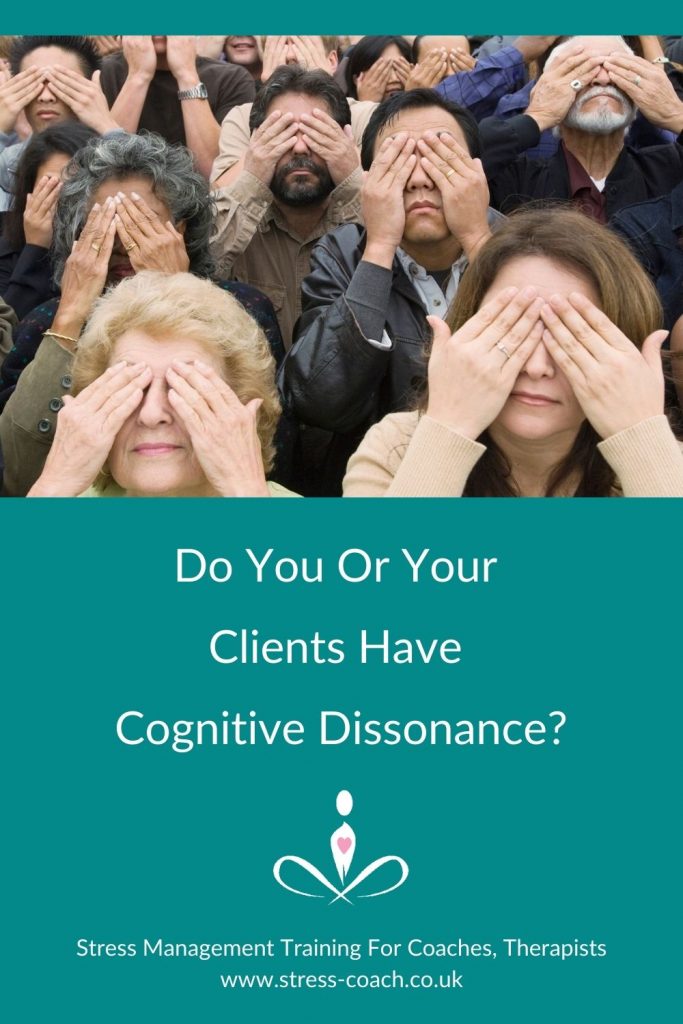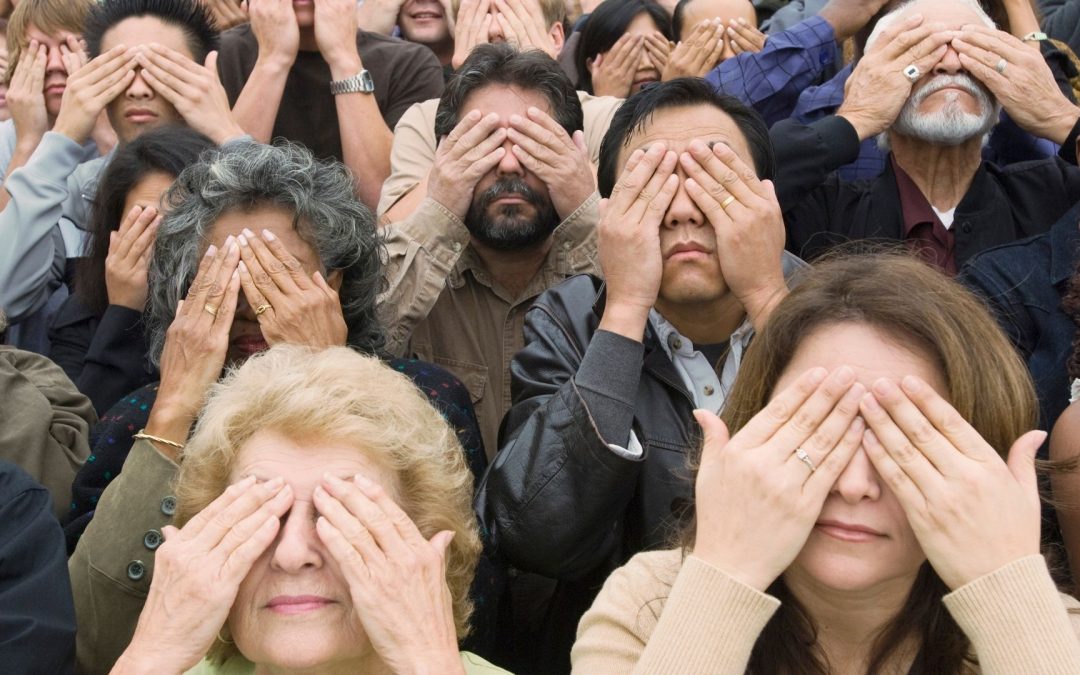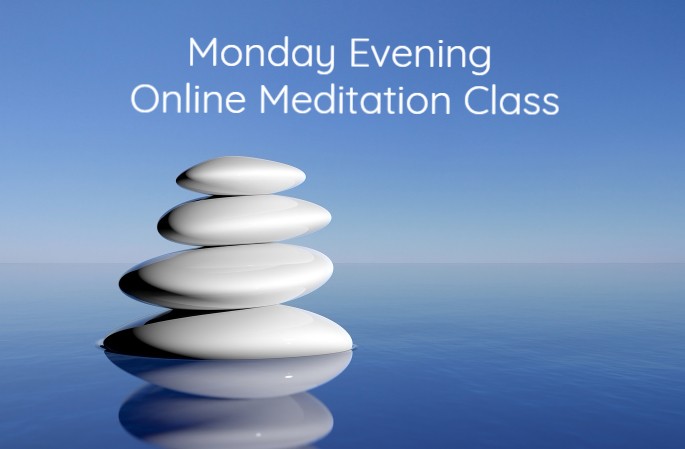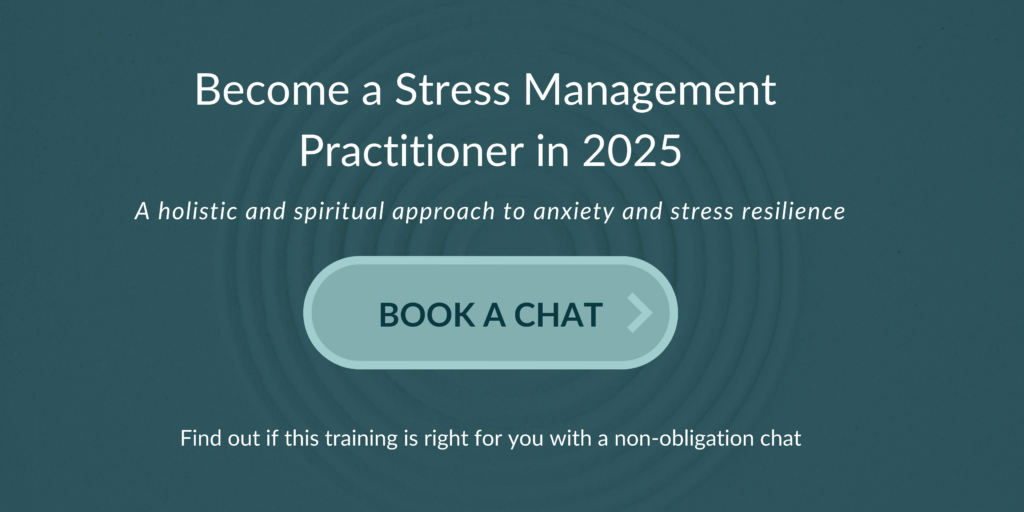Cognitive Dissonance – The Struggles Of Cognitive Dissonance
Why so many people right now are suffering from the psychological stress of Cognitive Dissonance? Why are so many people in a state of cognitive denial and often don’t realisee it?
Why Cognitive Dissonance is a form of psychological stress and can lead to all sorts of behaviour and actions not congruent with our normal way of being.
What is Cognitive Dissonance?
Cognitive Dissonance is when we find ourselves in a state of inner conflict because of two opposing beliefs, attitudes or values. In the 1950’s Leon Festinger, Ph.D., introduced the term Cognitive Dissonance to describe the dis-ease or uncomfortableness a person feels when cognition and behavior don’t align with each other.

In a state of cognitive dissonance, we can find it difficult to accept or believe something because it creates too much uncomfortableness. Or we just do something even if it causes some sort of inner conflict to avoid some other sort of other conflict like rejection of others. Cognitive Dissonance is a form of Denial Syndrome.
“Sometimes people hold a core belief that is very strong. When they are presented with evidence that works against that belief, the new evidence cannot be accepted. It would create a feeling that is extremely uncomfortable, called cognitive dissonance. And because it is so important to protect the core belief, they will rationalize, ignore, and even deny anything that doesn’t fit in with the core belief. “ Frantz Fanon
Common Causes Of Cognitive Dissonance
Forced Compliance Behaviour
Forced Compliance Behaviour is any situation where you feel forced to behave or comply in a certain way. Throughout history, we know of many situations where masses amount of people complied with certain orders even though there was inner conflict. Examples of this are seen throughout the centuries during world crises, war crimes, and tyrannical governments, where people just did what they were told to do, believed what they were told to believe, or just followed the crowd.
According to Psychologist Stanley Milgram “The essence in obedience consists in the fact that a person comes to view himself as an instrument for carrying out another person’s wishes and he therefore no longer regards himself as responsible for his actions.”
Having To Make A Decision
Every day we have to make decisions, some of those decisions can be extremely hard because we may have a lot more to lose. It is much easier to rationalise certain decision-making on what we feel we have got to lose rather than what we think now is true or right.
For example, you may be in a job situation where you feel your ethics or values are being compromised, but it just feels too much of a risk to say something because you think you may lose your job. In a state of cognitive dissonance deep down you may know you are being complicit in being a witness to certain things but you don’t do or say anything so there is inner conflict, and uncomfortableness even if you try to push it down.
Effort
Everything in life takes a different amount of effort, we tend to value and hold onto things we have put most effort into. Cognitive dissonance can be triggered when we put a lot of effort into something and get very little back. We may want to try and pretend it didn’t matter for example a relationship, a business that you put a lot of effort in that did not work out. It can be too hard to face the truth.
Process Of New Information
The process of new information that goes completely against our previous and present beliefs, values and attitudes can be very difficult for people to process. That is why new information particularly shocking information about personal tragedy, serious corruption, or heinous crimes is one common cause of cognitive dissonance.
And why so many forms of child abuse are not always believed and it is also the reason why so many corrupt leaders around the world remain in power. Any information that causes too much uncomfortableness, pain, or trauma can trigger cognitive dissonance. Some things can seem so crazy or so awful we don’t want to believe.
“Control the manner in which a man interprets his world, and you have gone a long way toward controlling his behavior. That is why ideology, an attempt to interpret the condition of man, is always a prominent feature of revolutions, wars, and other circumstances in which individuals are called upon to perform extraordinary action.” ― Stanley Milgram, Obedience to Authority
Cognitive Dissonance In Society
Cognitive Dissonance can lead to all sorts of denial and self-destructive, sabotaging patterns in individuals and society. It is the result of the inability to face our fear, pain, and trauma. An inability to look at not just others’ shadow but our own. It also stems from our inability to take responsibility for our beliefs, our actions, our choices.
Cognitive Dissonance can also arise when someone or something tries to deceive us or tries to persuade us towards a certain narrative that suits their agenda. It can be sometimes easier to believe a narrative than to face the truth. We can find it too uncomfortable to challenge or face what is happening. Or to make a decision we don’t want to make even if it does not sit well with our present beliefs, values, and attitudes.
One common experiment where we witnessed cognitive dissonance was Stanley Milgram’s ‘authority’ experiments. Where two-thirds of the studies participants continued to give electric shocks up to 450 volts to an other. “almost 90% administered at least one more shock after hearing the learner pound on the wall” Cordelia Fine, A Mind of its Own: How your brain distorts and deceives, 2007, pp. 67-68. A demonstration of how the average person is capable of doing things they never would imagine doing just because of the circumstance they find themselves.
“…The social psychology of this century reveals a major lesson: often it is not so much the kind of person a man is as the kind of situation in which he finds himself that determines how he will act.” (Milgram, 1974)
Cognitive Dissonance causes Psychological Stress because it triggers all sorts of uncomfortable feelings, emotional pain, and trauma. Many people go through periods of cognitive dissonance during stages of grief, especially in situations where there is an unexpected death or loss.
How To Minimise Cognitive Dissonance
Increase Your Self-Awareness:
Become more self-aware of what you believe and why, become more aware of your emotional triggers, your vulnerabilities, your weaknesses; and any sabotaging behaviours that make you want to resist, deny or even comply with certain beliefs.
Critical Thinking:
Develop the ability to question things and become a critical thinker. Develop the ability to question your own beliefs, your attitudes and values, and those things that are imposed on you by your culture, education system, government, religion…Sadly we live in a society where people are brainwashed by media, by the phones, computers, and TV that they spend hours scrolling through or watching. It has reduced people’s natural ability to become more critical thinkers.
Face Your Fears:
A lot of cognitive dissonance comes from that inability to face your fear, and face your own shadow as well as the shadow of those around you.
It’s Okay To Change Your Mind:
Remember it is okay to make mistakes or change your mind, it is okay to be unsure about anything and to take your time to make your mind up.
It’s Okay To Have Different Views:
Remember it is okay to have different or opposing views to your partner, your parents, your colleagues, your friends, and your children. Don’t ever let fear of what others think, or rejection stop you from denying your own views or even unsureness.
Intuition:
Intuition and inner guidance are such an undervalued and underused skill. It is your spiritual navigation system so start using it more, start practicing it more.
Reduce Anxiety and Stress Levels:
Increased levels of anxiety and stress make you more vulnerable to cognitive dissonance. Doing what you can do to reduce and manage your stress and anxiety will make you more resilient to this sort of dissonance.







